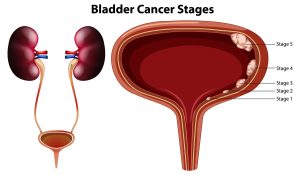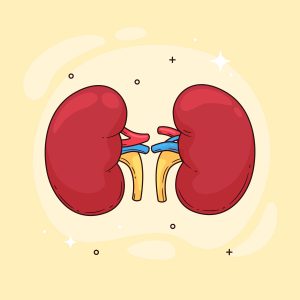Renal cancer, commonly known as kidney cancer, begins in the tissues of the kidneys—two essential organs responsible for filtering waste and balancing fluids in the body. Early detection plays a crucial role in improving outcomes, making awareness of symptoms and risk factors extremely important.
Types of Renal Cancer
Kidney cancer can present in different forms, each with distinct characteristics:
1. Renal Cell Carcinoma (RCC)
The most common type of kidney cancer, accounting for nearly 90% of cases. It begins in the lining of the small tubes in the kidney that filter blood.
2. Transitional Cell Carcinoma (TCC)
Develops in the renal pelvis, where urine collects before passing into the ureter. TCC behaves similarly to bladder cancer.
3. Wilms Tumor
A rare type of kidney cancer that primarily affects children, often detected between ages 3 and 8.
Common Symptoms of Renal Cancer
Kidney cancer may not cause noticeable symptoms in the early stages. However, as the disease progresses, the following signs may appear:
1. Hematuria (Blood in the Urine)
One of the most common symptoms—urine may appear pink, red, or cola-colored.
2. Flank Pain
Persistent pain on one side of the back or flank area.
3. Abdominal Mass
A palpable lump or swelling in the abdomen or side.
Additional symptoms may include fatigue, unexplained weight loss, and fever.
How Renal Cancer is Diagnosed
Accurate diagnosis involves a combination of imaging and laboratory tests:
1. Imaging Tests
CT scans, MRI, or ultrasound help visualize kidney structures and detect abnormal growths.
2. Biopsy
A tissue sample may be taken to confirm the presence and type of cancer.
Blood and urine tests also help assess kidney function and overall health.
Treatment Options for Renal Cancer
Treatment depends on the type, stage, and overall health of the patient. Common approaches include:
1. Surgery
Often the first line of treatment.
- Radical nephrectomy: Removal of the entire kidney.
- Partial nephrectomy: Removal of only the tumor, preserving kidney function.
2. Targeted Therapy
Drugs designed to attack cancer-specific genes and proteins.
3. Immunotherapy
Boosts the body’s immune system to recognize and destroy cancer cells.
4. Ablation Therapy
Minimally invasive techniques such as radiofrequency ablation or cryotherapy to destroy tumors using heat or cold.
Prognosis & Importance of Early Detection
With early diagnosis and proper treatment, many patients with renal cancer can achieve positive outcomes. Regular check-ups, awareness of symptoms, and timely medical consultation are key to better prognosis.
If you or someone you know is experiencing symptoms or at risk, seek evaluation from a qualified healthcare professional.
Dr. V. Manjunath
MBBS, MS (General Surgery), MCh (Urology)
Consultant – Urology & Andrology














